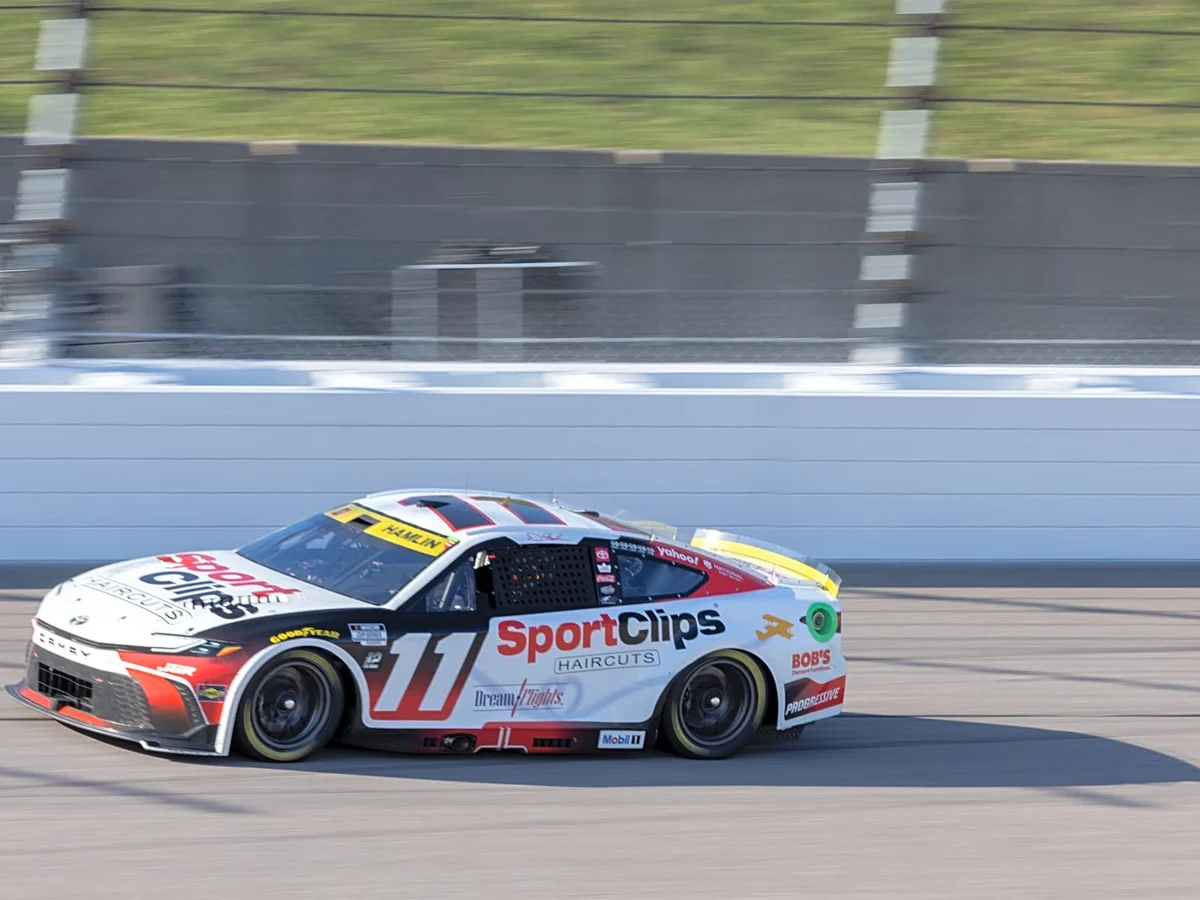Denny Hamlin, a prominent NASCAR driver and co-owner at 23XI Racing, has openly criticized the organization’s recent television contracts, citing a steep decline in audience figures and blaming these deals for alienating dedicated fans. On his Actions Detrimental podcast, Hamlin specifically discussed the effect of NASCAR’s $7.7 billion TV deal, asserting that the sport’s decision-makers prioritized revenue over accessibility, which he argues has driven away viewers—a central concern highlighted in the ongoing Denny Hamlin NASCAR TV criticism debate.
This dispute occurs as NASCAR faces record-low ratings, with the 2025 regular season and playoffs drawing the smallest audiences in recent memory. Hamlin alleges that the pursuit of lucrative media rights led NASCAR executives to overlook the crucial role wide accessibility plays in maintaining fan interest.
NASCAR Faces Unprecedented Ratings Declines
The scale of the decline in NASCAR’s audience has alarmed stakeholders throughout the industry. Data from the 2025 season paints a bleak picture: regular season broadcast averages fell to just 2.64 million viewers—an all-time low for the sport. Playoff coverage fared even worse, with viewership dropping by roughly 1.15 million compared to the previous year.
Key races have underscored this trend. The Pocono event, which aired on Amazon Prime, saw only 1.87 million viewers—a 22% decrease from 2024. At New Hampshire, numbers dipped even further, shrinking by 31% to just 1.29 million. In stark contrast, the NFL continues to dominate the television landscape, averaging 17.5 million viewers per game while NASCAR struggles to break above three million, intensifying the ongoing NASCAR vs NFL viewership battle.
Hamlin Voices Anger on Actions Detrimental Podcast
On his podcast, Hamlin made clear he believes NASCAR’s media agreements have repeatedly sacrificed fan convenience for financial gain. He explained,
“In each one of the TV deals that we’ve signed over the last few years or the past few agreements that we’ve had, we’ve always just taken the most amount of money… It’s not been about ‘What’s going to put us on in the most households,’”
— Denny Hamlin, Driver and Co-Owner.
Hamlin elaborated on the adverse effects of frequent channel changes and fragmented distribution:
“We were the guinea pigs to get Channel X off the ground, Channel Y off the ground. And you’re asking so much of your fans to just keep chasing you around all these different networks.”
— Denny Hamlin, Driver and Co-Owner.
These grievances align with a growing sentiment among fans that the unpredictability of coverage across networks such as NASCAR Fox, NBC, and TNT Warner Bros. Discovery is making it increasingly difficult to follow the series consistently. Many worry that the channel-hopping problem, coupled with the complexity of streaming log-ins and apps, has rendered NASCAR less accessible to its audience.
Fans Echo Hamlin’s Concerns and Demand Change
Online forums and social media showcase widespread dissatisfaction among NASCAR’s fan base. Many blame not only scattered TV coverage but also issues such as the controversial Next Gen car, the extended 38-race calendar, and complex playoff formats that have eroded the sport’s stability and appeal. Fans, like Hamlin, believe these factors have hindered NASCAR’s ability to engage both casual viewers and die-hard followers.
Seeking solutions, Hamlin proposed the rescheduling of select races to Saturday nights as a way to sidestep head-to-head competition with the NFL, explaining,
“I’m just saying it’s not a school night,”
— Denny Hamlin, Driver and Co-Owner. He acknowledged potential downsides for traveling fans but stressed his intent was to spark discussion,
“It definitely would be harder for those who travel, so you don’t want to just alienate them. I’m just brainstorming here.”
— Denny Hamlin, Driver and Co-Owner.
Additionally, Hamlin has advocated for a shorter NASCAR season, ending before the annual football surge begins, hopeful this adjustment would keep the sport’s content fresh and maintain fan energy throughout the year.
Uncertain Future as Executives Weigh Next Steps
Hamlin insists his outspoken position is motivated by concern for NASCAR’s future rather than controversy for its own sake. He warns that continued reliance on shifting, high-value TV rights, without addressing the valid complaints of core supporters, could trap NASCAR in a cycle where past success is unattainable.
As Hamlin’s podcast continues to amplify the frustrations of drivers and viewers alike, attention now turns to NASCAR executives and broadcast partners at Amazon Prime, NBC, NASCAR Fox, and TNT Warner Bros. Discovery. The question remains whether these warnings will spark meaningful change or deepen the disconnect between the sport’s leadership and its devoted audience.
For now, the debate around Denny Hamlin NASCAR TV criticism highlights the mounting pressure on officials to find solutions before more fans tune NASCAR out for good.

